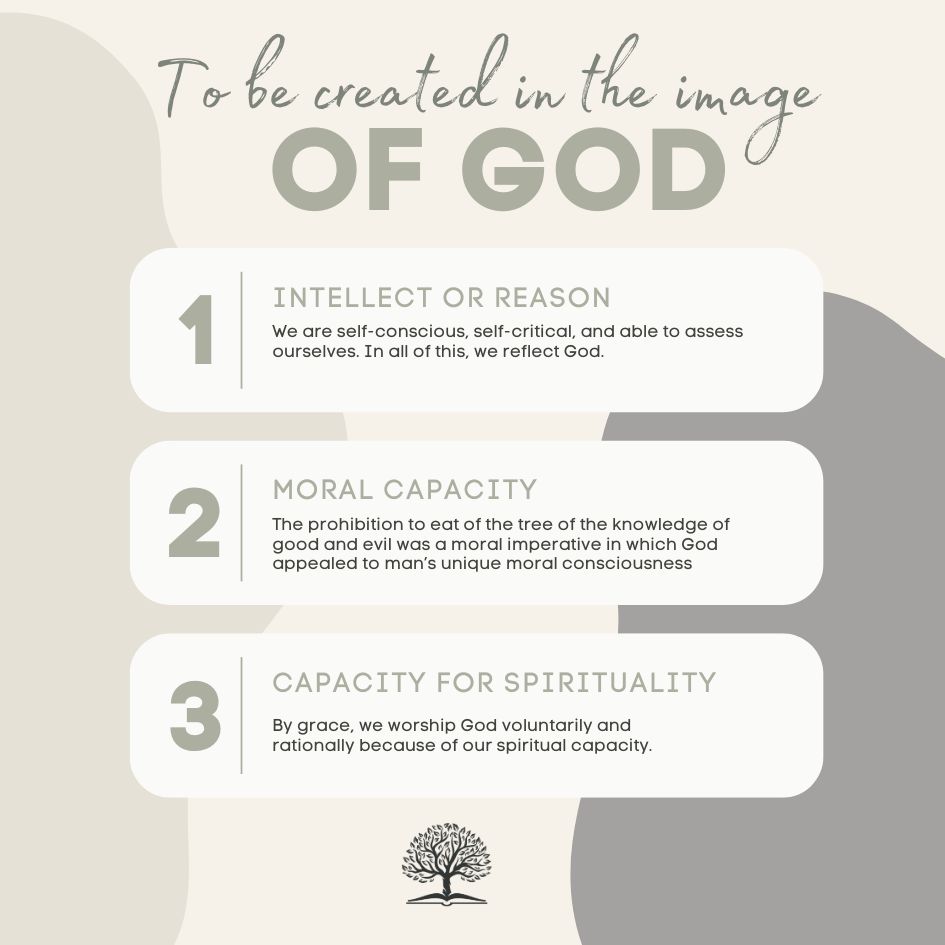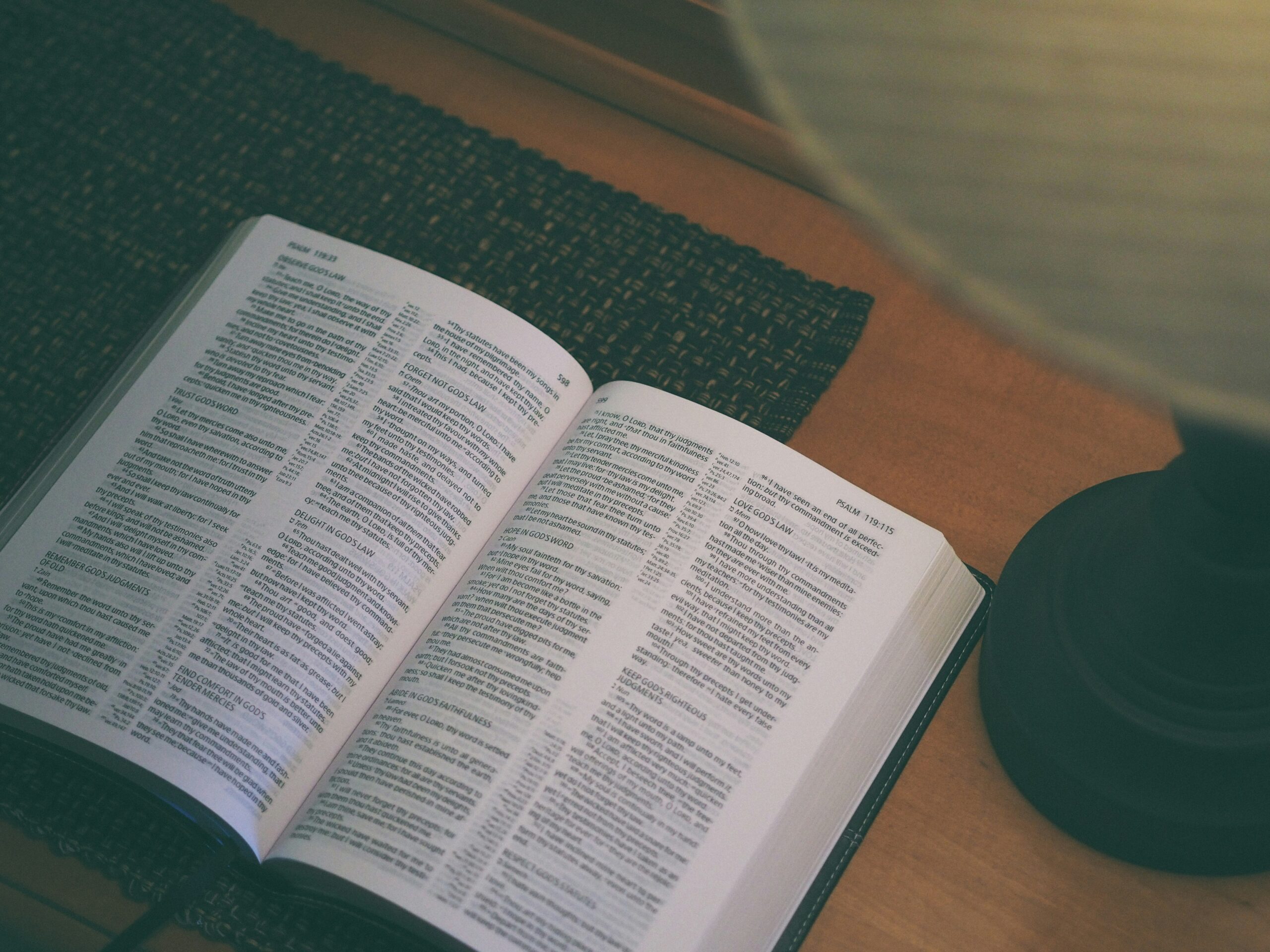
Let us make man in our image…. So God created man in his own image, in the image of God created he him.
— GENESIS 1:26–27a
God created man specifically different from the rest of His creation in terms of bearing His image and likeness. These unique aspects of man’s creation give him great dignity.
What does it mean to be created in the image or likeness of God? That is an important question because, even as fallen creatures, we still bear, in some sense, the image and likeness of God, though every aspect is flawed by sin. The image of God in man includes three important capacities:
First, the image of God in man includes the capacity for intellect or reason. God has a mind and is perfectly wise. So when God addresses man, He does so in rational terms. For example, He says, “Come now, and let us reason together” (Isa. 1:18).
We have an intellectual capacity that distinguishes us from the animals. We can reason, remember, and communicate better than all other creatures. We are self-conscious, self-critical, and able to assess ourselves. In all of this, we reflect God.
Second, the image of God in man includes moral capacity. The God of Genesis is good and righteous. He says of everything He created, “It is good.” His creation was beautiful not only externally but internally; it was essentially morally good. The prohibition to eat of the tree of the knowledge of good and evil was a moral imperative in which God appealed to man’s unique moral consciousness.
In comparison, if you have trained it well, your dog may obey you when you command it. The dog’s behavior, however, is not its moral choice but because of instinct that results from training. A dog does not have the moral capacity that is an important part of the image of God in man.
Finally, the image of God in man includes the capacity for spirituality. God did not commune with any animal in Eden in the sense that He communed with Adam and Eve. He did not call out to any animals, “Where art thou?” There is a unique capacity in us to have communion with Him. Nature does not choose to praise God because it does not have the capacity for spirituality. By grace, we worship God voluntarily and rationally because of our spiritual capacity.
Excerpt from
Milk and Honey
by Joel R. Beeke








